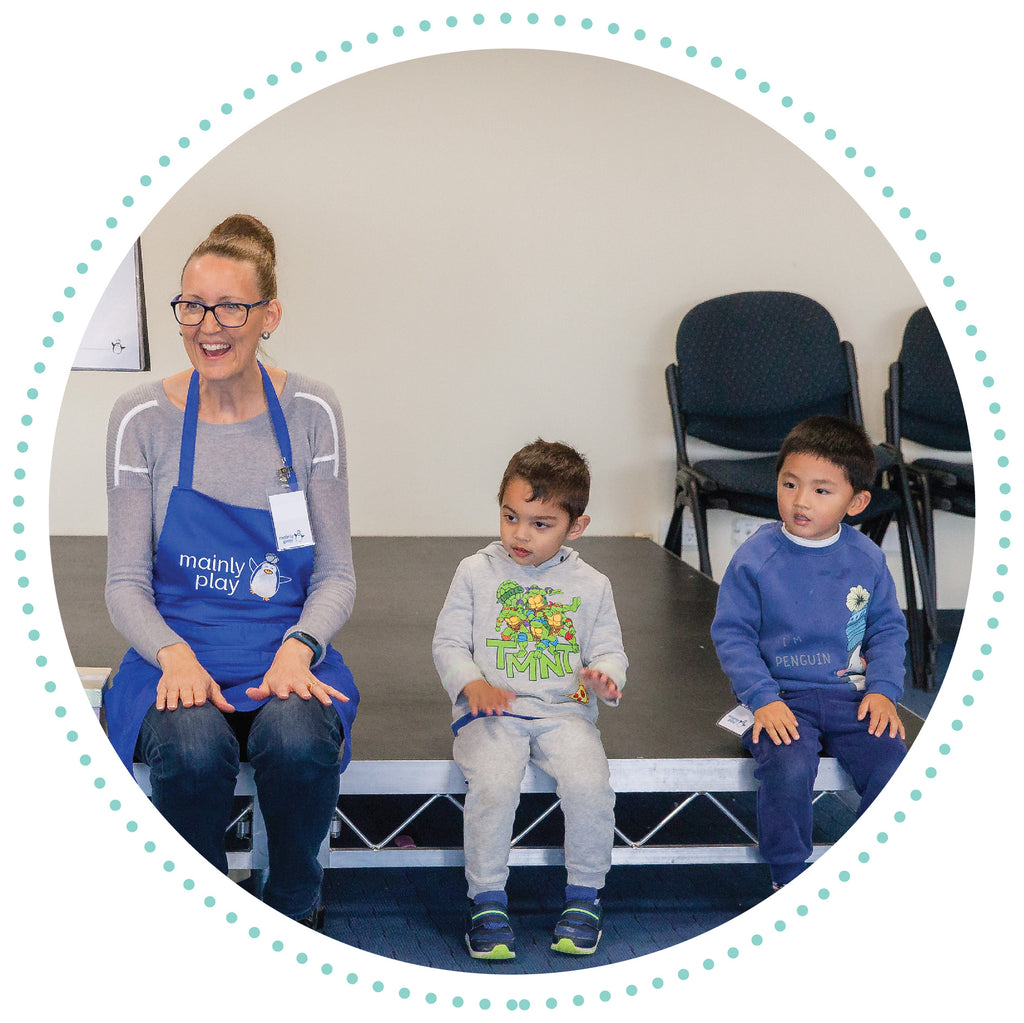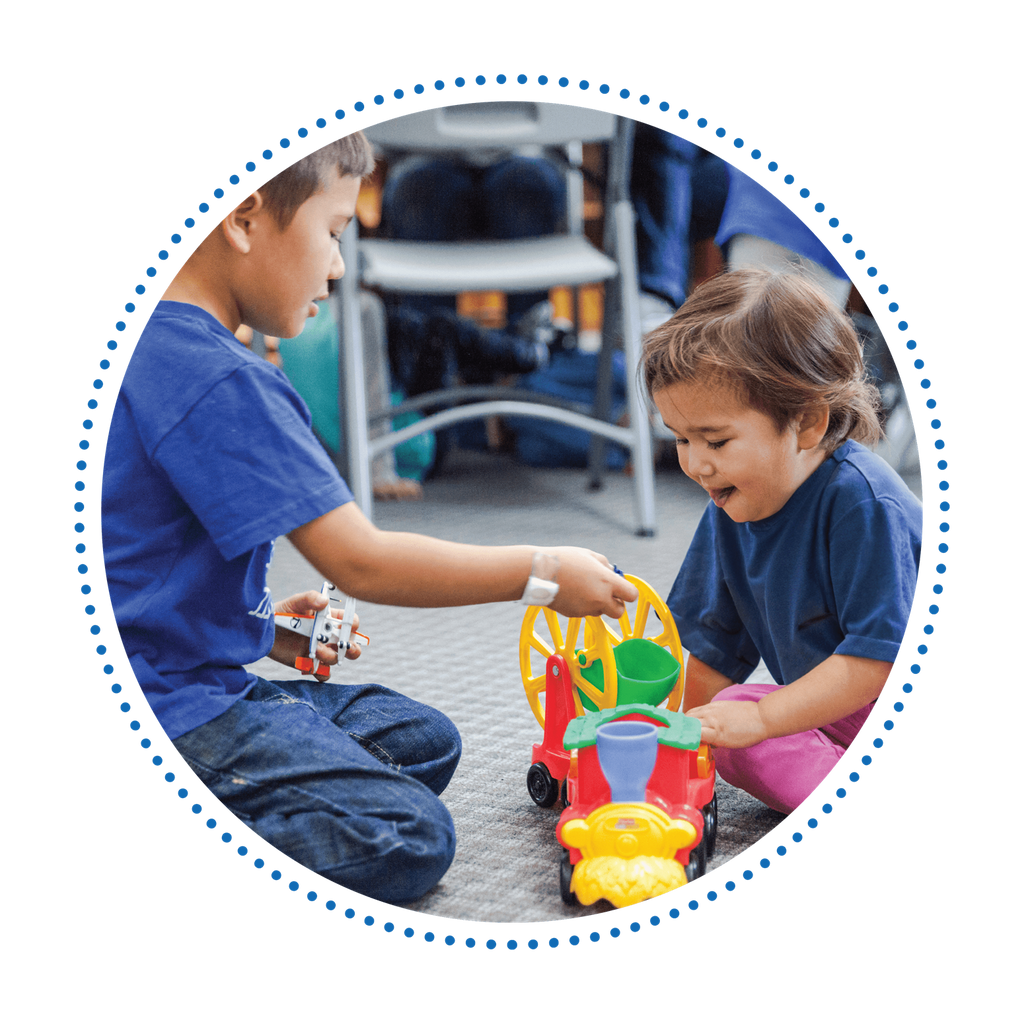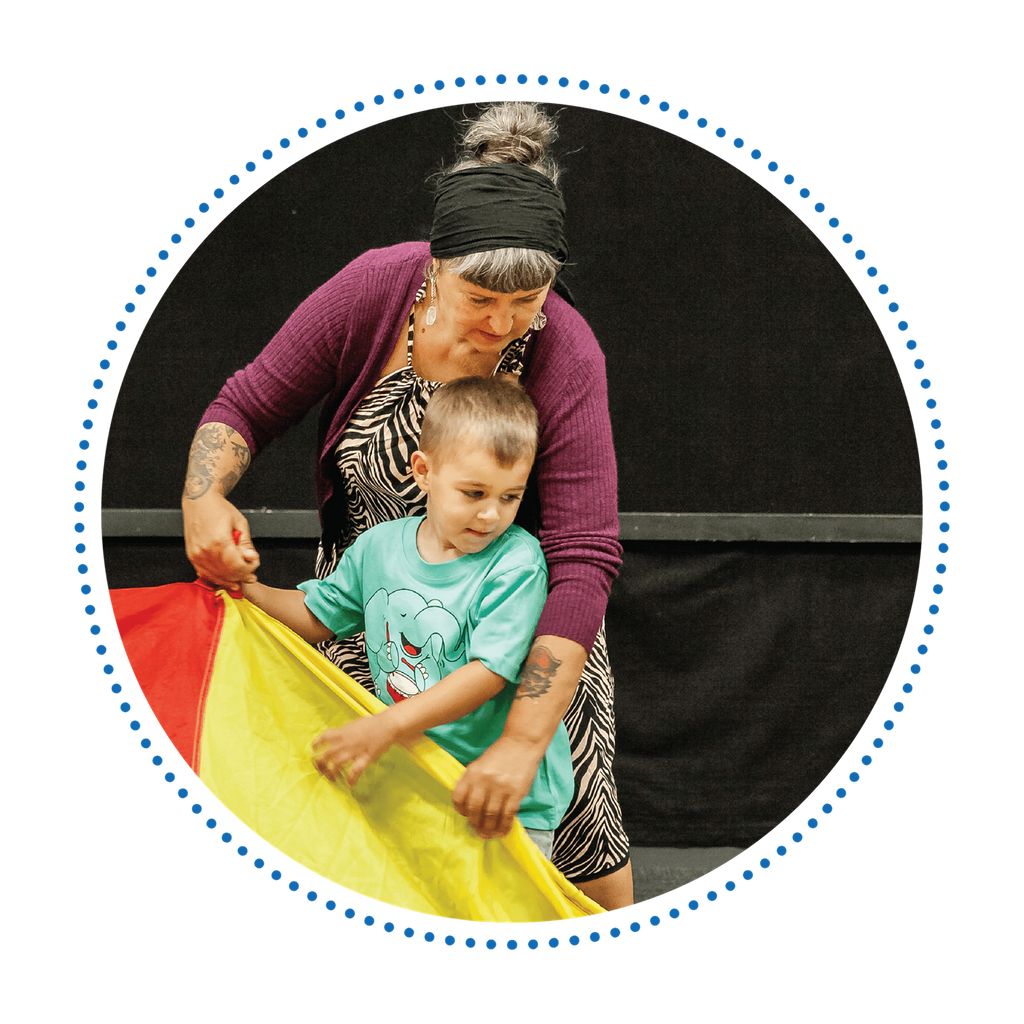Redefining the 3 R’s
Rhyming helps your child learn about sounds and words and builds early literacy skills and memory.
Hearing and using rhymes, rhythm and repetition is vital for early brain development and establishes a secure foundation for future learning. Sharing songs and stories and making up your own rhymes are fun ways for children to get creative and explore language. The familiarity of nursery rhymes provides a common bond with older generations, and is a comfort to children in stressful situations.
Traditional nursery rhymes and simple songs are important for speech development and discriminating between sounds. Their verses follow basic patterns that are easy to repeat and memorise, and often include numbers, counting, comparison of size, weight and other mathematical concepts.
Many of the rhymes used at mainly music and mainly play involve whole body movement, balance and coordination or finger plays that encourage fine motor skills. They also nurture a child’s imagination and help to stimulate a sense of humour.
Passing 3R’s on
Here are some suggestions you could use in your family.
The next time you are out and about, in the garden or enjoying a walk together, talk about rhyming words for the things that you see and hear – “there’s a bee in the tree”, “I can hop in the shop”.
Use words with the same starting sounds (alliteration) – “big blue ball”, “green grass”.
Sing rhymes together that relate to the things you see – “The wheels on the bus”, “Oh where has my little dog gone?”, or “Five little ducks”.




